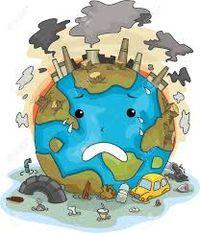Our planet Earth, a vibrant and diverse ecosystem, is increasingly threatened by the growing problem of pollution, a direct result of human activities that release harmful substances into the environment, affecting air, water, and soil, and posing serious risks to both human health and the natural world.
Key Sources of Pollution:
Industrial Emissions:
Factories release toxic chemicals into the air and water bodies, contributing significantly to air and water pollution.
Vehicle Exhaust:
Car emissions release greenhouse gases and particulate matter, impacting air quality, especially in urban areas.
Waste Disposal:
Improper management of solid waste, including plastic, leads to land and ocean pollution.
Agricultural Practices:
Excessive use of pesticides and fertilizers can contaminate water sources and soil.
Impact of Pollution:
Health Issues:
Air pollution can trigger respiratory illnesses, while contaminated water leads to waterborne diseases.
Ecological Disruption:
Pollution disrupts ecosystems, impacting biodiversity by harming plant and animal life.
Climate Change:
Greenhouse gas emissions from human activities contribute to global warming, causing extreme weather events.
Towards a Cleaner Future:
Sustainable Practices:
Implementing eco-friendly alternatives in industries and daily life, such as renewable energy sources and responsible waste management.
Strict Regulations:
Enforcing stricter environmental laws to control emissions and waste disposal.
Public Awareness:
Educating individuals about the importance of reducing their environmental footprint and promoting sustainable choices.
Conclusion: Pollution is a pressing global concern that demands immediate action. By understanding the causes and impacts of pollution, we can work collectively to protect our planet and ensure a healthy future for generations to come.

